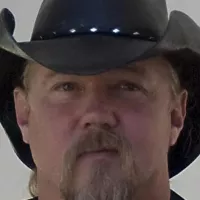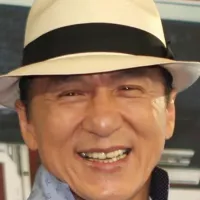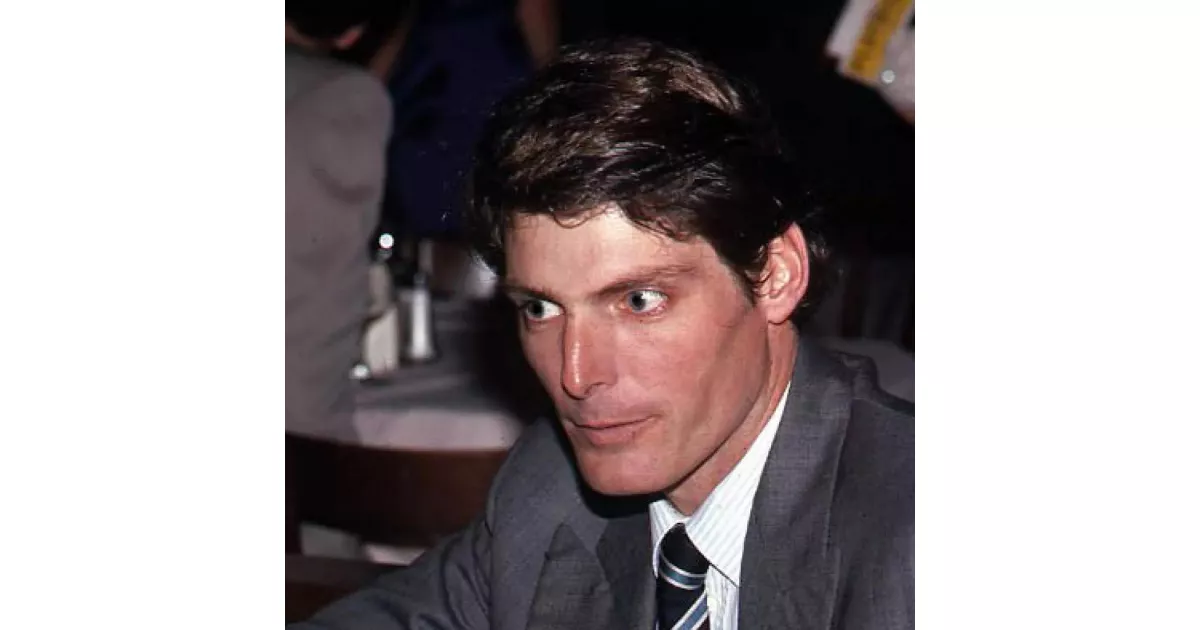How Christopher Reeve built a successful career. Explore key moments that defined the journey.
Christopher Reeve was an American actor, director, and activist. He is most famous for portraying Superman in the film series (1978-1987). Beyond his acting career, which earned him a British Academy Film Award, an Emmy Award, a Grammy Award and a Screen Actors Guild Award, Reeve was also known for his advocacy work.
1962: Passion for Acting Discovered
In 1962, at age nine, Christopher Reeve found his passion for acting when he was cast in an amateur version of the operetta 'The Yeomen of the Guard'.
1968: Campaign for Robert F. Kennedy
In 1968, at the age of 15, Christopher Reeve conducted a door-to-door campaign on behalf of Robert F. Kennedy.
1970: Protests Against Cambodia Invasion
In 1970, Christopher Reeve participated in protests against the invasion of Cambodia.
1973: The Three Musketeers
In 1973 the two-parter The Three Musketeers was filmed.
1974: The Four Musketeers
In 1974 the two-parter The Four Musketeers was filmed.
1974: Auditioned for Love of Life
In 1974, Christopher Reeve auditioned for the soap opera 'Love of Life' to pay tuition fees at Juilliard, leading to increased screen time and scheduling conflicts.
1975: Cast in A Matter of Gravity
In late 1975, Christopher Reeve auditioned for and was cast by Katharine Hepburn in the Broadway play 'A Matter of Gravity'.
June 1976: Dropped out of Play in Los Angeles
In June 1976, Christopher Reeve dropped out of the play 'A Matter of Gravity' when it moved to Los Angeles, to Katharine Hepburn's disappointment.
1976: Broadway Debut
Christopher Reeve made his Broadway debut in 1976.
1978: Superman Film Series (1978-1987)
In 1978 Christopher Reeve played the title character in the Superman film series which would continue until 1987.
1978: Auditioned for Superman
In 1978, Christopher Reeve auditioned for the leading role of Clark Kent/Superman in the film 'Superman'.
1978: Breakthrough Role in Superman
In 1978, Christopher Reeve had his breakthrough role playing the title character in the movie Superman.
1978: First Hollywood Role
In 1978, Christopher Reeve's first role in a Hollywood film was a small part as a junior officer in the naval submarine disaster movie 'Gray Lady Down'.
1978: Christopher Reeve's first role after Superman
In 1978, after playing Superman Christopher Reeve's landed a role in Somewhere in Time released later in 1980.
1979: Special Olympics Coach
In 1979, Christopher Reeve served as a track and field coach at the Special Olympics.
1979: Filming of Somewhere in Time
In mid-1979, Christopher Reeve filmed Somewhere in Time on Mackinac Island at the Grand Hotel.
1980: Superman Sequels and Somewhere in Time
In 1980, Christopher Reeve acted in the sequel to Superman and also appeared in the film Somewhere in Time.
1980: Release of Somewhere in Time
In 1980, Christopher Reeve starred in the time-travel romance film Somewhere in Time as Richard Collier. The film was shot in 1979 and was Reeve's favorite film to make.
1981: Reeve returns to Williamstown Theatre Festival
In 1981, Christopher Reeve returned to the Williamstown Theatre Festival to play Achilles in The Greeks. Earlier, after Superman II, Reeve joined the Williamstown Theatre Festival and starred in The Front Page and The Cherry Orchard. He also played a disabled Vietnam veteran in Fifth of July on Broadway, which was nominated for five Tony Awards.
1982: Deathtrap
In 1982, Christopher Reeve appeared in the critically successful film Deathtrap.
1982: Reeve stars in Deathtrap and Monsignor
In 1982, Christopher Reeve played a devious playwright in Deathtrap and a corrupt Catholic priest in Monsignor. While Deathtrap was well-received but affected by a plot twist spoiler, Reeve felt that Monsignor allowed him to play a morally ambiguous character, though he blamed its failure on poor editing.
1983: Reeve appears in Faerie Tale Theatre and The Aviator
In 1983, Christopher Reeve appeared in Shelley Duvall's Faerie Tale Theatre and starred in the film The Aviator. Reeve readily accepted the role in The Aviator and volunteered to do his own piloting of the vintage biplane.
1983: Higher Gains for Superman III
In 1983, Christopher Reeve made even higher gains for Superman III
1983: Election to Actors' Equity Association Council
In 1983, Christopher Reeve was elected to Actors' Equity Association Council.
1983: Release of Superman III and Reeve's critique
In 1983, Superman III, directed by Lester, was released. Christopher Reeve felt the film's credibility was diminished by its comedic approach, particularly the inclusion of Richard Pryor. Reeve praised the automobile junkyard scene but criticized the overall direction, lamenting the absence of Donner's influence. While the film received negative reviews, Reeve's portrayal of the Evil Superman garnered praise.
1984: The Bostonians
In 1984, Christopher Reeve appeared in the critically successful film The Bostonians.
1984: Reeve reunites with Redgrave in The Aspern Papers
In 1984, Christopher Reeve reunited with Vanessa Redgrave in The Aspern Papers in London. Reeve also played the title role in Richard Cory in Williamstown. Hepburn praised his performance in The Bostonians.
1984: Reeve stars in The Bostonians
In 1984, Christopher Reeve starred in The Bostonians alongside Vanessa Redgrave. Despite taking a significant pay cut, Reeve was happy to participate in the film, which was critically acclaimed. Reeve helped brokered arrangements with the CAA for Merchant Ivory Productions.
March 1985: Reeve stars in Anna Karenina and daughter's appearance
In March 1985, Christopher Reeve starred in Anna Karenina, where his daughter Alexandra made her first on-screen appearance. Reeve learned to ride horses for the film and took up the sport seriously afterward. He also hosted an episode of Saturday Night Live.
March 1985: Release of The Aviator
The film The Aviator, starring Christopher Reeve was released in March 1985.
1985: Reeve shoots Anna Karenina
In 1985, Christopher Reeve was shooting Anna Karenina.
1986: Reeve stars in Street Smart and Summer and Smoke
In 1986, Christopher Reeve starred in Street Smart, produced by Cannon Films, opposite Morgan Freeman. He agreed to appear in Superman again for them. He also starred in Summer and Smoke in Williamstown.
February 1987: Reeve and Exton separate; Reeve stars in Switching Channels
In February 1987, after filming Superman IV, Christopher Reeve and Gae Exton separated. Reeve starred in Switching Channels, which was an unpleasant experience due to feuds between Burt Reynolds and Kathleen Turner.
1987: End of Superman Film Series
Christopher Reeve's time playing the title character in the Superman film series ended in 1987.
1987: Street Smart
In 1987, Christopher Reeve appeared in the critically successful film Street Smart.
1987: Workout Focus for Superman IV
In 1987, Christopher Reeve decided it would be healthier to focus more on cardiovascular workouts for Superman IV: The Quest for Peace.
1987: Release of Superman IV: The Quest for Peace
In 1987, Superman IV: The Quest for Peace was released. After his disappointment with Superman III, Christopher Reeve initially refused to reprise his role but agreed on the condition that he have creative control over the script and that the movie would focus on nuclear disarmament. The film was a critical and commercial failure, and Reeve later regretted his involvement. His children had uncredited roles in a deleted scene.
1987: Protest in Chile
In late 1987, Christopher Reeve flew to Santiago, Chile, and helped lead a protest march against dictator Augusto Pinochet, who threatened to execute 77 actors. He was later awarded the Grand Cross of the Order of Bernardo O'Higgins.
1988: Reeve stars in The Great Escape II and Summer and Smoke
In 1988, Christopher Reeve played Major Johnnie Dodge in The Great Escape II. He also starred in Summer and Smoke with Christine Lahti at the Ahmanson Theatre.
1989: Onstage performances
For most of 1988 and 1989, Christopher Reeve worked on stage. In Williamstown, he reunited with Madeleine Potter in Joel Gross' play, Mesmer, and performed in a stage reading of the same play on Broadway.
1989: Joining the Creative Coalition
In 1989, Christopher Reeve joined the Creative Coalition (TCC), a liberal organization founded by Ron Silver, aiming to teach celebrities how to speak knowledgeably about political issues.
1989: Performances in The Winter's Tale and John Brown's Body
In 1989, Christopher Reeve played Polixenes in The Winter's Tale and starred in John Brown's Body, where Dana Morosini also had a small role. Reeve auditioned for Pretty Woman, but walked out after an unprofessional experience.
1990: Performances in Love Letters
In 1989 and 1990, Christopher Reeve performed in Love Letters with Julie Hagerty in multiple cities.
1990: Reeve stars in The Rose and the Jackal and Death Takes a Holiday
In 1990, Christopher Reeve starred in The Rose and the Jackal as Allan Pinkerton and played Death/Prince Nikolai Sirki in Death Takes a Holiday in Williamstown.
1991: Guest appearance in Carol & Company
In 1991, Christopher Reeve made a guest appearance in the television show 'Carol & Company'.
1991: Roles in Bump in the Night and Death Dreams
In 1991, Christopher Reeve was cast as a villain in Bump in the Night and Death Dreams. Bump in the Night, where he played a child molester, received fair reviews.
1992: Attended US premiere of Howards End
In 1992, Christopher Reeve attended the US premiere of Howards End and met Ivory, who later offered him a role in The Remains of the Day.
1992: Guest Appearances in Road to Avonlea and Tales from the Crypt
In 1992, Christopher Reeve made guest appearances in 'Road to Avonlea' and 'Tales from the Crypt'.
1992: Roles in Noises Off, Mortal Sins, and Last Ferry Home
In 1992, Christopher Reeve played a lead role in Peter Bogdanovich's comedy Noises Off and starred in Mortal Sins, where he played a Catholic priest. His last performance in a stage production was The Guardsman in Williamstown. He also acted in the short film Last Ferry Home.
1992: Role in Nightmare in the Daylight
In 1992, Christopher Reeve was cast as a villain in Nightmare in the Daylight.
1993: The Remains of the Day
In 1993, Christopher Reeve appeared in the critically successful film The Remains of the Day.
1993: Forum on Censorship in Tucson
In 1993, Christopher Reeve participated in a forum on censorship in Tucson, Arizona, held by People for the American Way. He and other actors performed a reading of a play that had led to a teacher's firing.
1993: Guest Caller on Frasier
In 1993, Christopher Reeve was one of the celebrity guest callers on 'Frasier'.
1993: Review of Morning Glory
In 1993, a review for 'Morning Glory' noted Christopher Reeve's performance, suggesting a reversal of perception of him as an actor beyond Superman.
1993: Sale of Superman rights to Warner Bros.
In 1993, two years before his accident, the Salkinds sold the rights to the character of Superman to Warner Bros. A fifth Superman movie titled Superman Reborn was planned, but it was never produced due to studio shifts, the failure of Superman IV, and Christopher Reeve's accident.
1994: Final onstage performances
In 1994, Christopher Reeve performed a reading of Love Letters in Williamstown and narrated a concert version of the musical Allegro at the New York City Center, marking his last performances onstage.
1994: Co-President of TCC
In 1994, Christopher Reeve was elected as a co-president of the Creative Coalition (TCC).
1994: Review of Speechless
In 1994, a critic praised Christopher Reeve's evolution into a versatile character actor in a review for 'Speechless'.
1995: Starred in Village of the Damned
In 1995, Christopher Reeve starred in John Carpenter's 'Village of the Damned', a remake of the 1960 British movie, and played a paralyzed police officer in the HBO movie 'Above Suspicion'.
1995: CBS released Black Fox
Two months after Christopher Reeve's accident, in 1995, CBS released the miniseries 'Black Fox' as three films. The films feature Reeve riding horses.
1996: Appearance at the 68th Academy Awards
In 1996, 10 months after his injury, Christopher Reeve appeared at the 68th Academy Awards to a long standing ovation, encouraging Hollywood to make more films on social issues.
1996: Establishment of the Christopher Reeve Foundation
In 1996, Christopher Reeve established his own foundation, which later merged with the American Paralysis Association in 1999 to form the Christopher Reeve Foundation. The foundation aims to speed up research through funding and improve the quality of lives of people with disabilities.
1996: Narrated Without Pity and acted in A Step Toward Tomorrow
In 1996, Christopher Reeve narrated the HBO documentary 'Without Pity: A Film About Abilities', which won an Emmy Award, and acted in the film 'A Step Toward Tomorrow'.
1997: Directed 'In the Gloaming'
In 1997, Christopher Reeve directed the movie 'In the Gloaming'.
1997: Support for Insurance Cap Bill
In 1997, Christopher Reeve supported a bill to raise the lifetime "cap" on insurance payments from $1 million to $10 million per person, but the bill was narrowly defeated.
1997: Hollywood Walk of Fame Star
In 1997, INSITE (International Network of Somewhere in Time Enthusiasts) sponsored Christopher Reeve's star on the Hollywood Walk of Fame, raising over $20,000 for the Christopher & Dana Reeve Foundation.
April 25, 1998: Publication of Still Me
On April 25, 1998, Random House published Christopher Reeve's autobiography, 'Still Me', which became a New York Times Best Seller. The audiobook version won a Grammy Award.
1998: Acted in Rear Window Remake and Published Still Me
In 1998, Christopher Reeve acted in the television remake of Rear Window and also wrote his autobiographical book 'Still Me'.
1998: Starred in Rear Window remake
In 1998, Christopher Reeve starred in and served as executive producer of 'Rear Window', a remake of Hitchcock's 1954 film. He was nominated for a Golden Globe and won a Screen Actors Guild Award for his performance.
1998: Spinal Cord Research Fundraiser
In early 1998, Christopher Reeve persuaded Michael Eisner to give a prime-time slot on ABC to a spinal cord research fundraiser called A Celebration of Hope, which received an Emmy nomination.
1999: Support for Work Incentives Improvement Act
In 1999, Christopher Reeve supported the Work Incentives Improvement Act, which allows people to continue to receive disability benefits after they return to work, and this bill passed.
1999: Merger into Christopher Reeve Foundation
In 1999, the American Paralysis Association and Christopher Reeve's own foundation, established in 1996, were merged into the Christopher Reeve Foundation.
2000: Guest appearance on Sesame Street
In 2000, Christopher Reeve made guest appearances on the PBS series 'Sesame Street'.
2001: Reeve lobbied for the Human Cloning Prohibition Act of 2001
In 2001, Christopher Reeve lobbied for the Human Cloning Prohibition Act of 2001, advocating for somatic cell nuclear transfer research while opposing reproductive cloning.
2001: Reeve receives Public Service Award
In 2001, Christopher Reeve received the Public Service Award from the American Society for Cell Biology for "outstanding public service in support of biomedical research."
September 2002: Publication of Nothing Is Impossible
In September 2002, Random House published Christopher Reeve's second book, 'Nothing Is Impossible: Reflections on a New Life', which became a New York Times Best Seller. He narrated an audiobook for which he received his second Grammy nomination.
2002: Reeve lobbied for somatic cell nuclear transfer research
In 2002, Christopher Reeve continued to advocate for somatic cell nuclear transfer research, emphasizing its importance for safe stem cell implantation.
February 2003: Experimental Diaphragm Procedure
In February 2003, Christopher Reeve became the third patient in the United States to undergo an experimental procedure in which electrodes were implanted in his diaphragm to help him breathe without a ventilator.
February 25, 2003: Appearance in Smallville
On February 25, 2003, Christopher Reeve appeared in the Smallville episode "Rosetta" as Dr. Virgil Swann, informing Clark Kent about his origins. This episode set ratings history for The WB.
July 2003: Reeve visits Israel to seek stem cell research advancements
In July 2003, Christopher Reeve visited Israel to explore stem cell research advancements, praising the country's proactive rehab facilities, medical schools, and research infrastructure.
September 2003: Reeve awarded the Lasker Public Service Award
In September 2003, Christopher Reeve was awarded the Lasker Public Service Award for his advocacy for medical research and victims of disability.
2003: Guest-starred in The Practice
In 2003, Christopher Reeve guest-starred in an episode of 'The Practice', based on a story treatment he submitted that addressed health insurance policy and caregiver burnout.
2003: Appearances in Smallville
In 2003, Christopher Reeve made two appearances in the Superman-themed television series Smallville.
2003: Impact of Reeve's Advocacy
In 2003, Jerome Groopman commented on Christopher Reeve's impact, noting his role as a catalyst in society and the significant increase in funding for spinal-cord research following Reeve's injury. UC Irvine recognized Reeve's unparalleled contributions to promoting research on spinal cord injury and neurological disorders.
June 2004: Reeve defends somatic cell nuclear transfer at the United Nations
In June 2004, Christopher Reeve provided a videotaped message to the United Nations, defending somatic cell nuclear transfer research.
2004: Directed The Brooke Ellison Story
In 2004, Christopher Reeve directed 'The Brooke Ellison Story'. He also started directing the animated film 'Everyone's Hero' and died during its production, with his wife Dana and son Will contributing to the film.
2005: Williamstown Theatre Festival dedication to Reeve
In 2005, the Williamstown Theatre Festival announced it would dedicate the final performance of every season to Christopher Reeve's memory and establish a fund for artists with disabilities.
2008: Device Approved by FDA
In 2008, the diaphragm pacing device, which allowed Christopher Reeve to breathe without a ventilator, was approved by the FDA under a Humanitarian Device Exemption.
March 2009: President Obama signs the Christopher and Dana Reeve Paralysis Act
In March 2009, President Barack Obama signed the Christopher and Dana Reeve Paralysis Act, aiming to enhance paralysis research, improve rehabilitation, and enhance the quality of life for individuals with paralysis and other physical disabilities.
2015: Princeton Public Library creates Christopher Reeve Theater and Dramatic Arts Collection
In 2015, Princeton Public Library created the Christopher Reeve Theater and Dramatic Arts Collection, comprising books on acting, screenwriting, theater, filmmaking, cinema studies, music and Broadway, including Reeve's books.
2023: Device Receives Approval
In 2023, the diaphragm pacing device that Christopher Reeve used to help him breathe without a ventilator received premarket approval.
Mentioned in this timeline

Donald John Trump is an American politician media personality and...
Home Box Office HBO is an American pay television service...

Barack Obama the th U S President - was the...

George W Bush the rd U S President - is...

Google LLC is a multinational technology company specializing in online...
CBS Broadcasting Inc CBS is a prominent American commercial broadcast...
Trending

37 minutes ago Kelvin Sampson's Coaching Philosophy and Houston Cougars' SLAM Magazine Cover

38 minutes ago Trace Adkins Hints at Retirement with 2026 Tour Potentially Being His Last

38 minutes ago Urgent search: 3-year-old girl missing in Avondale, Amber Alert issued for safe return.

38 minutes ago Jackie Chan Shines in 'Unexpected Family' and Berlin Film Festival Recognition
39 minutes ago DAZN and Matchroom Boxing Extend Media Rights Deal for Five Years

39 minutes ago Russell Westbrook's wife receives death threats amid sports betting accusations and fan anger.
Popular

Jesse Jackson is an American civil rights activist politician and...

Barack Obama the th U S President - was the...

Ken Paxton is an American politician and lawyer serving as...
Randall Adam Fine is an American politician a Republican who...

Bernie Sanders is a prominent American politician currently serving as...

Michael Joseph Jackson the King of Pop was a highly...

